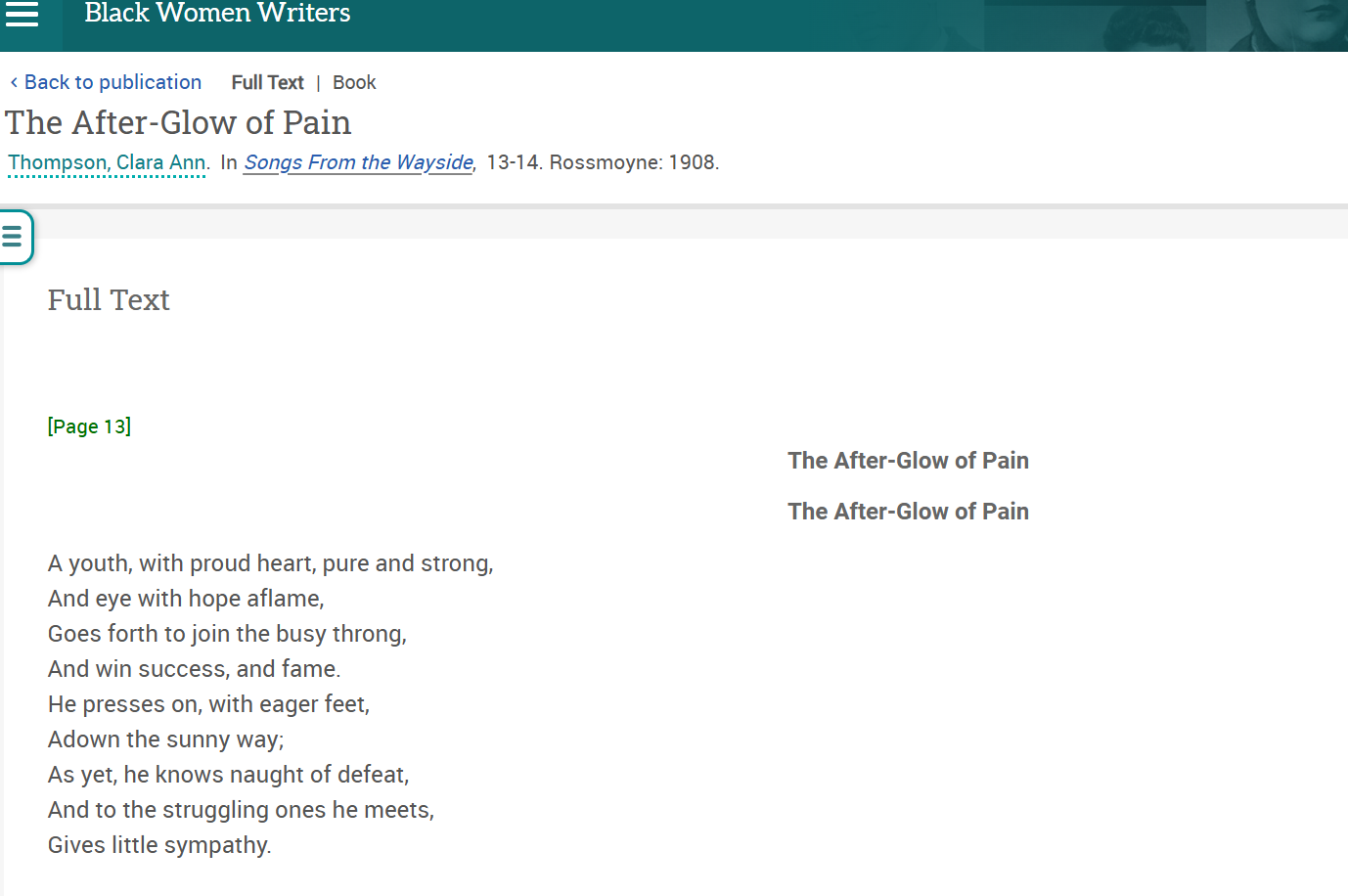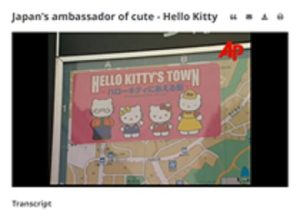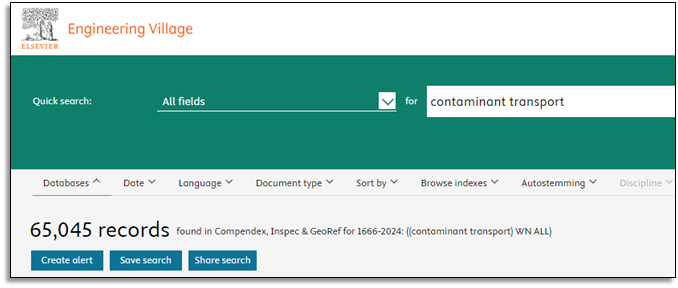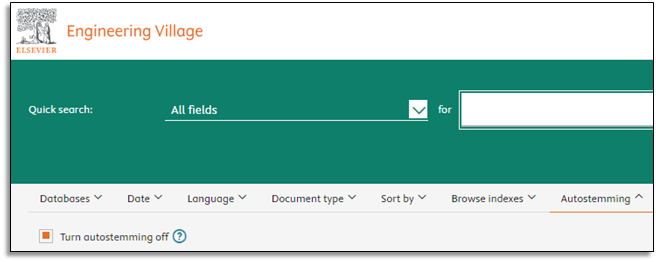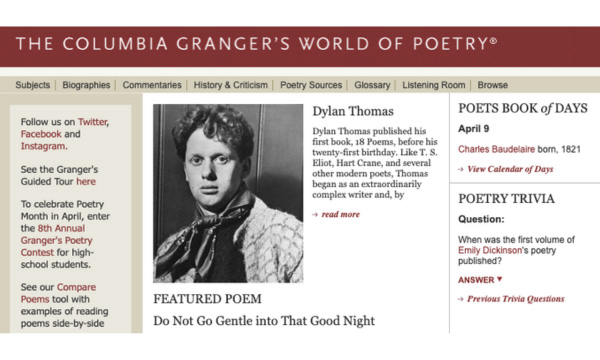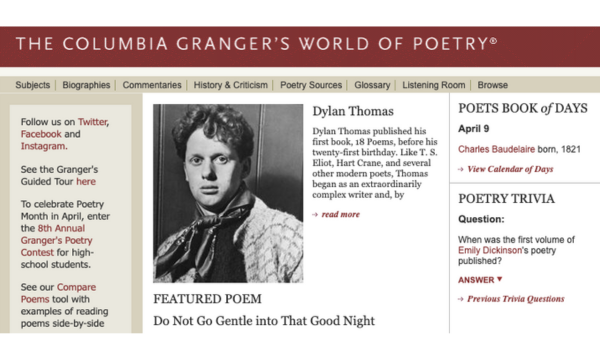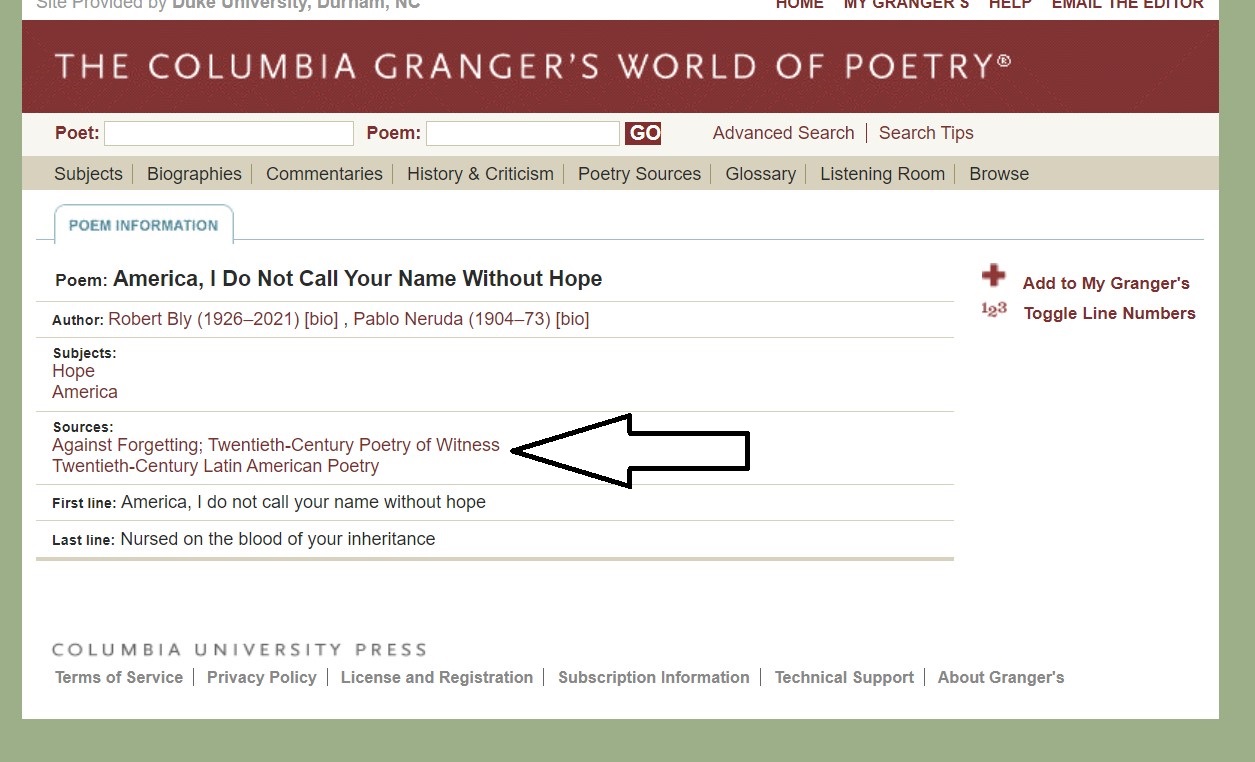 Post contributed by Arianne Hartsell-Gundy,
Post contributed by Arianne Hartsell-Gundy,
Head, Humanities and Social Sciences and Librarian for Literature
Black Women Writers contains literature and essays on feminist issues written by authors from Africa and the African Diaspora. Facing both sexism and racism, Black women needed to create their own identities and movements. This collection documents that effort over time with a particular focus on the evolution of Black feminism. Coverage starts in the 18th century and continues to the present time.
Why Should You Use This?
This collection provides full text access to writings by both well-known and more obscure Black women writers. Many of the texts were previously not available on the web and are extremely difficult to locate in print. They include obscure typewritten documents, photocopied journals, and other fugitive sources. You are likely to discover texts not found anywhere else. The inclusion of women authors in the Caribbean and Africa is also a real strength of this collection.
Cool Features
One feature I really like in this resource is the ability to search for a word within a document, so if you find a text that looks like it could be useful, you can then do a search within it to see if any relevant terms appear. This feature can save you time, especially when it comes to examining a longer text. Using the hit distribution feature, you can even get a sense of where certain terms might cluster in the text.
Database Tips
Because there are a large number of documents in this collection, it can be difficult to locate anything specific by just doing a general search. I highly recommend using the advanced search option.
In particular, there are some really useful options where you can search author nationality, author ethnicity, gender, and the years that an author was alive. The option to search for nationality or ethnicity can be especially valuable since there are a lot of international authors in this resource. In the example in the image below, you can see that there are 82 matches for Barbadian.
Similar Resources
If you want to explore further, we are fortunate to have other collections of primary sources related to Black authors, including Black Thought and Culture, Black Authors, 1556-1922: Imprints from the Library Company of Philadelphia, and Black Short Fiction and Folklore.
I also recommend checking out the Black Women Writers Project and the Black Women’s Suffrage Project.
Questions?
Contact Arianne Hartsell-Gundy, Head, Humanities and Social Sciences and Librarian for Literature.


